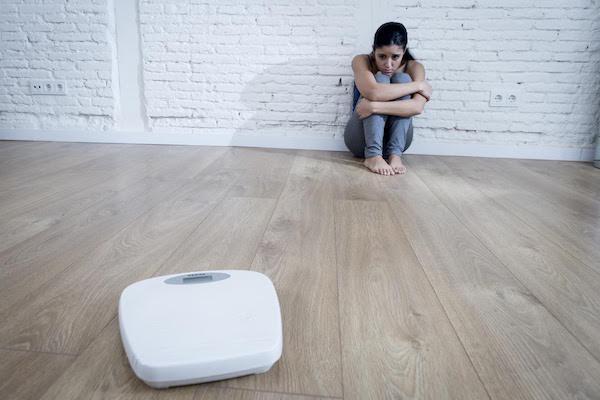The unfortunate truth is that eating disorders are prevalent in our society. According to surveys conducted by the National Eating Disorders Association (www.nationaleatingdisorders.org), current estimates are that 20 million women and 10 million men in the US will have an eating disorder at some point in their lives.
Parents are often the very first to recognize or suspect that their own daughter or son may be showing behavioral symptoms of suffering from an eating disorder. Those afflicted can be embarrassed, ashamed and may not even feel worthy of treatment. They can be secretive and may also go to great lengths to hide their disorder, so it is important to educate yourself and understand the signs and ways to identify the problem and seek treatment as soon as possible.
Individuals suffering from eating disorders drastically change their relationship with normal eating. Typical sufferers will go to great lengths to limit calories. Eating disorders can involve different techniques from not eating or restricting overall food intake, to binging and purging meals, and in some cases abusing over-the-counter or prescription medication. If you suspect your child is possibly showing signs, what do you look for and what are the next steps to take? Here are some of the warning signs:
Restricting Food or Dieting
• Making excuses to avoid meals/situations involving food (had a big meal, isn’t hungry, upset stomach)
• Eating tiny portions or only low-calorie foods and often banning entire categories of foods such as carbs and fat
• Obsessively counting calories, reading food labels, and weighing portions
• Developing restrictive food rituals such as eating foods in a certain order or rearranging food on a plate, excessive cutting or chewing
• Taking diet pills, prescription stimulants, or even illegal “speed-like” drugs to eliminate appetite
Bingeing
• Unexplained disappearance of large amounts of food in short periods of time
• Lots of empty food packages and wrappers, often hidden at the bottom of the trash
• Hoarding or hiding stashes of high-calorie foods such as junk food and sweets
• Secrecy and isolation; may eat normally around others, only to binge late at night or in a private spot where they won’t be discovered or disturbed
Purging
• Disappearing during or right after a meal to make frequent trips to the bathroom
• Showering, bathing, or running water after eating to hide the sound of purging
• Using excessive amounts of mouthwash, breath minds, or perfume to disguise the smell of vomiting
• Taking laxatives, diuretics, or enemas
• Periods of fasting or compulsive, intense exercising, especially after eating
• Frequent complaints of sore throat, upset stomach, diarrhea, or constipation
• Discolored teeth (the result of repeated vomiting)
• Backs of finger joints are callused or discolored from using fingers to induce vomiting.
Distorted Body Image and Altered Appearance
• Extreme preoccupation with body or weight (e.g. constant weigh-ins, spending lots of time in front of the mirror inspecting and criticizing their body)
• Significant weight loss, rapid weight gain, or constantly fluctuating weight
• Frequent comments about feeling fat or overweight, or a fear of gaining weight
• Wearing baggy clothes or multiple layers to hide weight
If some of these warning signs are familiar, it’s important to speak up. You should set aside time to speak to your loved one about your concerns. It’s also very important not to use any language that indicates blame but instead take a concerted approach. And discussing the need for professional help and guidance is encouraged. Don’t be afraid to have a conversation or be worried you may say the wrong thing, it’s more important to speak up. Without treatment, eating disorders only get worse.
You should be prepared for an emotional response from your loved one. Individuals suffering from eating disorders are often afraid to ask for help or don’t believe they deserve help. They will often deny that there is an issue or will become defensive. However, it is important to educate yourself and to also not give up after one or two discussions. Eating disorders are a very serious illness and in many cases, require the ongoing guidance and help of professional licensed counselors and therapists who have the expertise and are trained in this area.
If you think you have a child, teen, or young adult suffering from an eating disorder, you can contact us for help at the Washington Center for Women’s and Children’s Wellness at 301-881-9464 or reach out to us via email at info@wcwcw.org.






